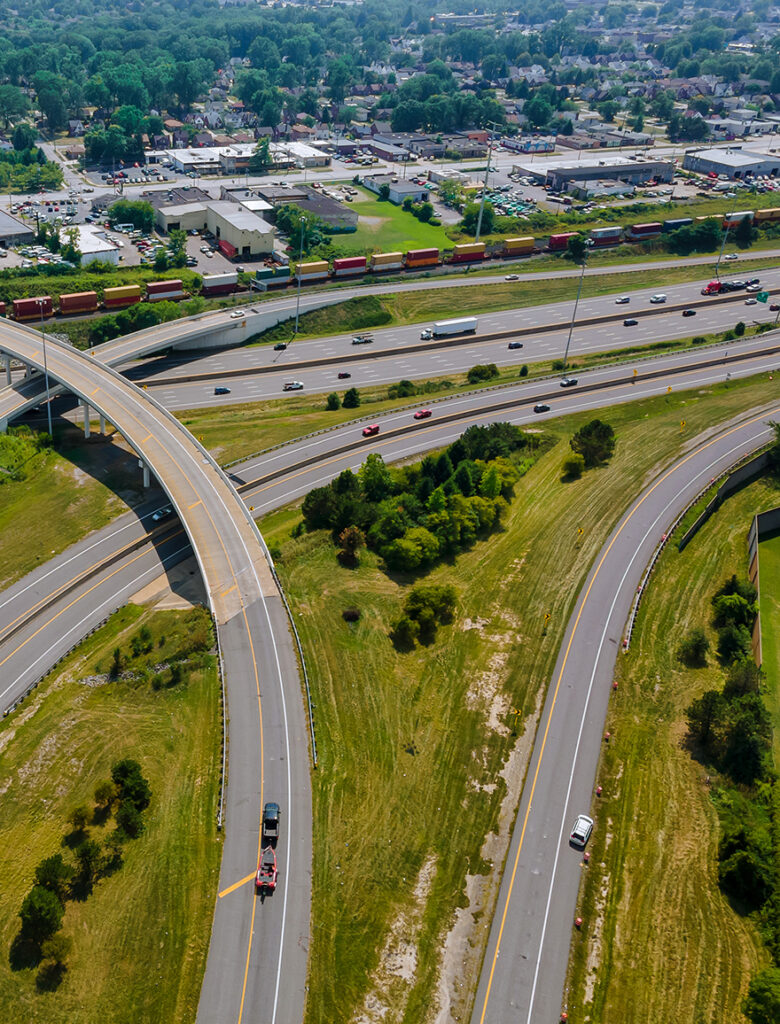FMCSA Drug Testing Requirements
As truck drivers, the ability to stay on the road to transport goods and make deliveries is extremely important. In fact, it’s so important that the pressure to keep up can sometimes make truck drivers in your fleet look for any way they can to stay awake and upright behind the wheel.
As the federal agency responsible for regulating and reducing accidents involving commercial trucks, the Federal Motor Carrier Safety Administration (FMCSA) has taken steps to ensure those truck drivers operate safely. One of the foremost safety regulations that the agency directs is the effort to test drivers for drugs and alcohol.

Contact Fleet Drug Testing For a Free Consultation
If you are a truck driver, you know how serious drug testing can be. Very simply, your livelihood depends on it. That’s why it’s extremely important not only to remain compliant but to understand when and where these tests are used. Moreover, fleet managers must also make sure that they are doing everything they can to ensure that their drivers and other employees are able to meet regulations. Failing to do so can be costly, both in the short and long term.
To better prepare and understand the drug testing process, contact Fleet Drug Testing for a free consultation.

Why Does the FMCSA Test For Drugs and Alcohol?
The FMCSA is the primary federal agency that is responsible for reducing the number of accidents–and by extension, injuries–involving commercial motor vehicles (CMVs). These vehicles make up a large percentage of the miles traveled by vehicles on roads throughout the country, and as such, make up a large percentage of accidents as well. Data from the FMCSA has found that 71% of accidents in 2020 were between commercial trucks and other vehicles, and 17% of fatal accidents involved the truck driver testing positive for at least one drug.
Part of the FMCSA’s effort to curb these unfortunate accidents is to test drivers for drugs and alcohol. The implementation, rules, and regulations for testing are under the purview of the FMCSA in order to maintain safety among drivers and even related employees. Thus, the following individuals and companies are subject to drug testing:
- Any person or company that owns or leases commercial motor vehicles
- Any person or company that assigns drivers to operate commercial motor vehicles
- Federal, state, or local governments
- For-Hire or private motor carriers
- Employees of any company that operates a vehicle requiring a CDL
With the need for drug testing established, your next question may be what exactly are the FMCSA’s requirements? The answer here is varied, depending on the situation.
What Are the FMCSA’s Drug Testing Requirements?
Generally speaking, there are two categories for FMCSA drug testing: random and reasonable suspicion.
Random
Under federal law, all CDL drivers and employers must submit to a certain percentage of random drug testing every year. Currently, employees need to be randomly drug tested at a rate of 50%, and tested for alcohol at 10%. What this means is that 50% of drivers in your fleet must be randomly tested for drugs and 10% must be randomly tested for alcohol during the year. In order to ensure compliance, the FMCSA recommends that employers should test quarterly and maintain the element of surprise.
Reasonable Suspicion
The second category occurs when an employer has a suspicion that a driver is using drugs or alcohol. Most likely, this testing occurs after an accident or firsthand observation of typical signs of drug or alcohol use, like slurred speech or odors. Only employers that have completed the FMCSA’s two-hour training course on observable symptoms of drug or alcohol use can utilize reasonable suspicion testing, and they cannot conduct a reasonable suspicion test based on third-party observation.
Other Testing Requirements
Pre-employment
Any prospective driver or employee must undergo a random drug or alcohol test per FMCSA regulations. These pre-employment checks help companies identify drivers who might pose a liability to their fleet before they are officially on the road for the company.
After an accident
Drivers that are involved in certain types of accidents are subject to drug and alcohol testing, per FMCSA guidelines. Specifically, drivers must submit to a post-accident drug or alcohol test when they are involved in either:
● A fatal accident or
● A non-fatal accident that involves a “moving violation”, or breaking a traffic law.
This helps the agency document which accidents are drug or alcohol related to better hone the guidelines and regulations in the future.
Return-to-duty
When a driver is attempting to return to duty after a positive drug test or an injury, there is a multi-step process that involves an evaluation from a FMCSA-certified medical professional that is trained in substance abuse, as well as the completion of prescribed treatment. These drivers must also complete random drug testing in order to be inserted back out on the road. Once the driver has completed this process, their results are uploaded to the FMCSA’s Clearinghouse database, which tracks and confirms drug test results for drivers.
Additionally, the driver must also submit to another six random tests over the next 12 months.
What Drivers and Employees Need to Know About FMCSA Drug Testing Requirements
Obviously, the importance of drug and alcohol testing is vital to the safety of not only drivers, but others that share the road with them. First and foremost, FMCSA regulations require that the following substances be tested for, along with alcohol:
- Marijuana
- Cocaine
- Opiates, opium, and codeine derivatives
- Amphetamines and methamphetamines
- Phencyclidine (PCP)
On top of these substances, FMCSA regulations are more stringent in terms of blood alcohol content (BAC) than normal drivers. While the legal BAC limit is typically 0.08% in most states, CDL drivers must have a BAC of less than 0.04% to be legally considered not under the influence.
Once testing positive, the driver is to be immediately removed from operating the vehicle on a public roadway and must be provided with a list of acceptable professionals to see for treatment to begin the return to duty process. Testing positive (or refusing to test) can have obviously devastating effects for not only the driver and their family. This often results in an extended period of unemployment, putting financial strain on the family as the driver attempts to rehabilitate and complete the return-to-duty process.
Overall, compliance with these regulations and requirements takes a concerted effort from all involved. At every step of the process, drivers need to know that they will be randomly tested at specific intervals, especially if they are in an accident. As such, total abstinence from using drugs or alcohol is the best practice to avoid a positive test result. Along the same lines, fleet managers can take steps to ensure compliance with these regulations by holding regular training, and even implementing their own stringent drug and alcohol testing policy.
All in all, solid policies and procedures, as well as training and knowledge of FMCSA regulations, can make sure that your drivers and fleet are able to meet goals and keep everyone safe.

Contact Fleet Drug Testing Today
Whether you are a fleet manager, employee, or driver, knowing the FMCSA drug testing requirements can be key in making sure you remain compliant and able to provide for your family. Fleet Drug Testing remains committed to helping drivers and managers be aware of how and when they will be tested by the FMCSA, and can even provide various services to that end. To learn more, contact our team today.

